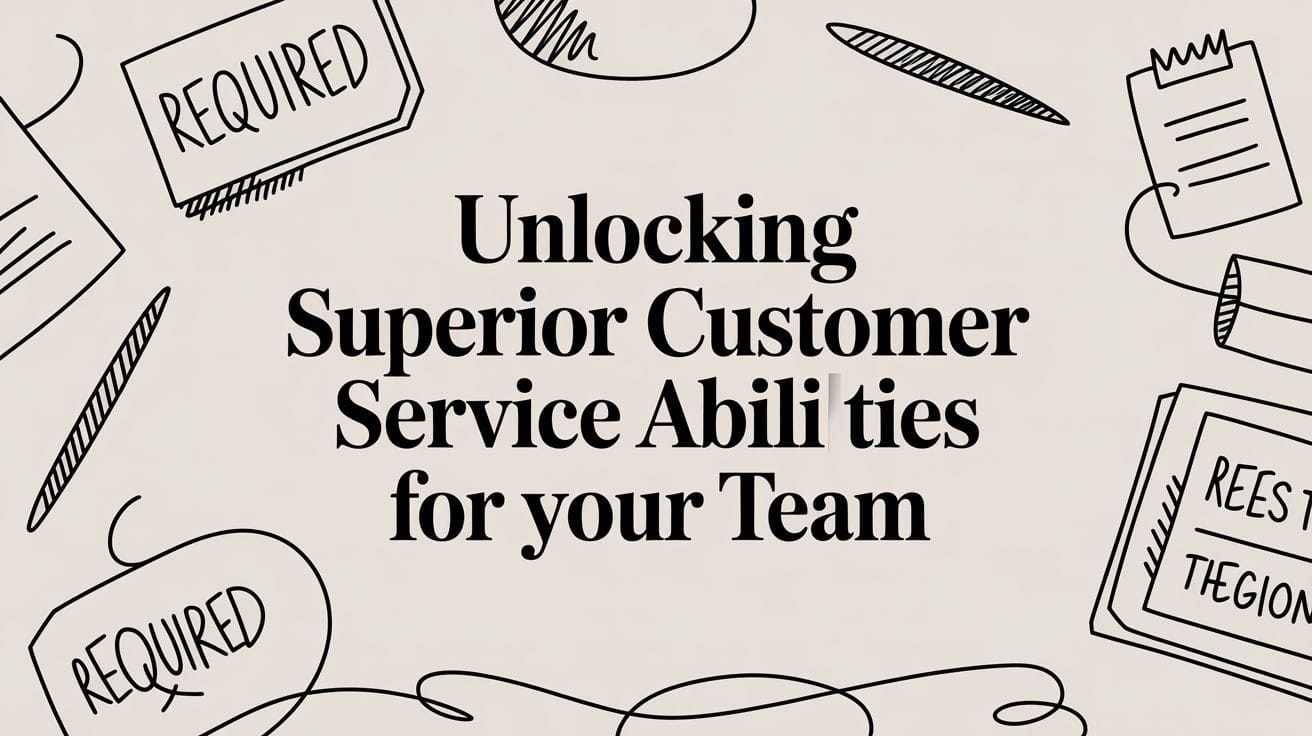In today's competitive marketplace, exceptional customer service is the golden ticket to nurturing satisfaction and fostering loyalty. When businesses prioritize superior customer interactions, they not only retain clients but also convert them into brand advocates. Mastering key customer service skills paves the path to elevated customer experiences and enduring relationships. Here's how leaders in customer service can refine these skills and, in turn, boost satisfaction and loyalty.
Understanding Your Customers' Needs
Active Listening
The cornerstone of understanding customer needs lies in active listening. This involves more than just hearing words—it's about engaging with the customer, asking clarifying questions, and genuinely absorbing their feedback. By honing active listening skills, service representatives can identify underlying issues and tailor their responses accordingly, fostering a sense of being heard and valued.
Empathy and Emotional Intelligence
Empathy allows service professionals to connect with customers on a personal level, demonstrating genuine concern for their challenges and aspirations. Cultivating emotional intelligence enhances this skill, helping representatives manage their emotions and perceive those of the customer. This connection can significantly improve customer satisfaction, as clients feel truly understood and supported.

Nurturing Effective Communication
Clarity and Precision
Clear and precise communication is essential in customer service. Ambiguity can lead to misunderstandings, frustration, and eventually, dissatisfaction. Train your team to articulate responses in a straightforward and concise manner while ensuring the message aligns with the customer's needs and expectations.
Positive Language
Using positive language helps shape a hopeful and affirmative tone in customer interactions, even when resolving complaints. By focusing on what can be done rather than what cannot, service teams can create a solution-oriented atmosphere that leaves a positive impression on the customer.
Problem-Solving and Adaptability
Quick and Efficient Resolution
Empower your team to solve problems swiftly and effectively by providing the necessary resources and training. Speedy resolutions demonstrate a commitment to customer satisfaction, making clients feel prioritized and valued. Additionally, establishing a framework for common issues can streamline processes and improve overall efficiency.
Adapting to Unique Situations
No two customer interactions are the same. Flexibility and creative thinking are crucial in adapting approaches to meet individual needs. Encourage your team to go beyond script adherence and foster a mindset that embraces unique, personalized solutions to enhance the customer experience.
Building Customer Trust and Loyalty
Consistency Across Channels
Consistency in customer service delivery is key to building trust. Whether through phone, email, or social media, ensuring a seamless and uniform experience reassures customers of the brand's reliability. Develop cross-channel guidelines to maintain a cohesive approach across all customer touchpoints.
Follow-Up Protocols
Regular follow-ups after issue resolution show a continued commitment to customer satisfaction. Implementing a follow-up protocol not only helps in confirming problem resolution but also opens a window for receiving further feedback, enabling continued service improvement.
FAQs
Why is active listening important in customer service ?
Active listening is crucial as it helps understand customer needs and emotions. This ensures accurate responses and solutions, enhancing the customer's trust and satisfaction.
How can customer service representatives improve their empathy skills ?
Empathy can be developed through training in emotional intelligence, encouraging awareness of personal biases, and practicing perspective-taking to better connect with customer emotions and experiences.
What are effective methods for resolving customer complaints ?
Effective complaint resolution involves acknowledging the issue, offering timely and clear communication, proposing solutions promptly, and following up to ensure satisfaction. Training staff to address problems rather than deflecting them is also vital.
What role does feedback play in customer service improvement ?
Feedback highlights areas of success and improvement, guiding businesses to refine strategies and practices. It is instrumental in tailoring services to better meet customer expectations and enhancing overall service quality.
How can consistency in service be maintained across different channels ?
Maintaining consistency involves creating guidelines that unify communication strategies, investing in employee training, and using integrated systems to ensure all customer interactions reflect the same standards and values across all platforms.








